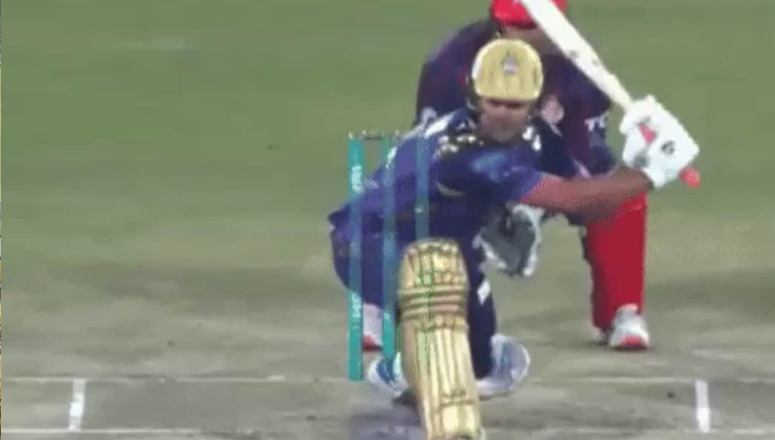- Dec 2, 2024
- Oct 26, 2023

The recent Pakistan Super League match between Quetta Gladiators and Islamabad United witnessed a major technological hiccup that cast a shadow over the game. Hawk-Eye, the renowned provider of the Decision Review System, made a significant error during a crucial LBW review involving Rilee Rossouw, leading to widespread criticism and raising questions about the reliability of technology in officiating.
The incident unfolded in the 11th over when Islamabad United bowler Agha Salman‘s delivery struck Rossouw’s front pad. The on-field umpire, Aleem Dar, adjudged him out, prompting a review from the Gladiators. However, to everyone’s surprise, the Hawk-Eye projection showed the ball missing the off-stump, leading to the on-field decision being overturned and Rossouw receiving a lifeline.
This decision sparked immediate controversy. Replays and expert analysis suggested that the Hawk-Eye projection was inaccurate, with the ball clipping the off-stump. The error was later confirmed by Hawk-Eye, who issued an apology to the Pakistan Cricket Board acknowledging a “human error” in the ball tracking data. They admitted that the displayed projection didn’t reflect the actual trajectory of the delivery.
This incident highlights several key concerns. While technology like DRS has undoubtedly improved umpiring accuracy, the Rossouw incident demonstrates its vulnerability to errors. Human involvement in data processing and interpretation leaves room for mistakes, raising concerns about its absolute reliability in high-pressure situations. Inaccurate DRS calls can significantly impact the outcome of matches, affecting player morale, team strategies, and fan engagement. This incident emphasizes the need for robust safeguards to minimize such errors and ensure fair play.
Moving forward, several steps can be taken to address these concerns. Implementing stricter training protocols and quality control measures for DRS operators can minimize human error. Implementing a redundant system for ball tracking and independent verification of data before displaying it on broadcast could add another layer of assurance.
The Rossouw incident serves as a stark reminder that technology, while invaluable in officiating, is not infallible. Continuous improvement, transparency, and ethical considerations are paramount to ensure that technology enhances the game, not undermines its fair play and integrity.